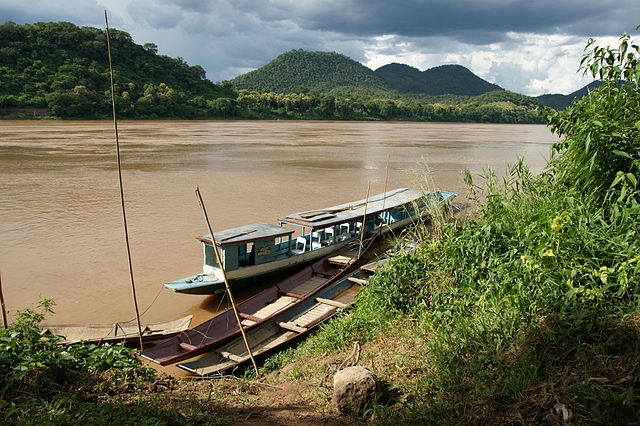A tourist ferry carrying 21 Britons and two South Africans set off on Wednesday from southwest China for Thailand, marking the resumption of tourist services on the Mekong River after a suspension following the murder of 13 Chinese sailors on the waterway last year.
 The vessel departed from the port of Jinghong in Yunnan Province less than one month after a Burmese drug gang leader and five of his gang members stood trial for the sailors' murders.
The vessel departed from the port of Jinghong in Yunnan Province less than one month after a Burmese drug gang leader and five of his gang members stood trial for the sailors' murders.
Naw Kham, the gang’s leader, pleaded guilty to murder. The verdict has yet to be announced. Thai military officers have also been accused of involvement in the murders.
Tian Wenqian, a border official in Yunnan, told Xinhua news agency that there is now renewed confidence for Mekong tourist travel.
Three other tourist trips are scheduled in November, departing from Jinghong for Laos, Burma, and Thailand, he said.
Cargo ferries, though briefly disrupted following the murders, resumed services on the river in December, along with regular security patrols by China, Burma and Thailand.
With a length of almost 5,000 km, the Mekong is one of the most important waterways in Southeast Asia, linking China, Laos, Burma, Thailand, Cambodia and Vietnam. It plays a crucial economic role among the Greater Mekong Sub-region countries.
In October, Mizzima reported that Naw Kham, who roamed the Golden Triangle area for a decade, has been abandoned by his former friends, according to his family.
Naw Kham operated relatively freely for nearly a decade, largely by befriending and bribing Burmese and other officials, according to a report on the Chinese CCTTnews website.
Earlier this year, both the Thai and Chinese governments placed him on top of their most wanted foreigners lists, with Thailand offering a US$ 65,000 bounty for his capture.
Following the murders, China was quick to respond to the growing domestic anger at the killings of its citizens in Thailand, and the threat to transportation on the Mekong River, an increasingly important waterway for commerce in the region.


